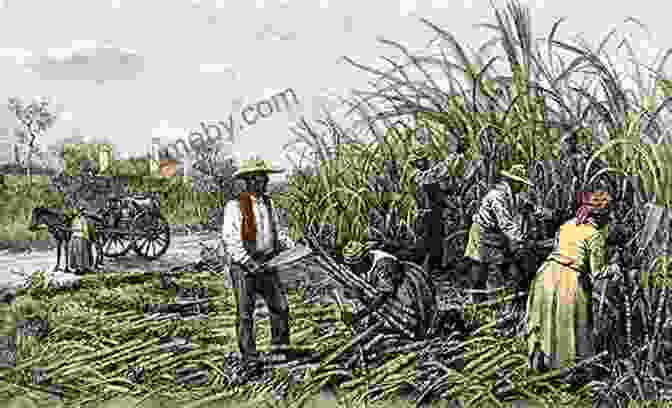Disease, Power, and Capitalism in the Cotton Kingdom: Unraveling the Sinister Nexus


4.5 out of 5
| Language | : | English |
| File size | : | 28705 KB |
| Text-to-Speech | : | Enabled |
| Screen Reader | : | Supported |
| Enhanced typesetting | : | Enabled |
| Word Wise | : | Enabled |
| Print length | : | 339 pages |
: A Legacy of Disease and Exploitation
The American South has a long and troubled history with disease, power, and capitalism. From the early days of slavery to the present, the region has been plagued by a variety of diseases that have disproportionately affected its African American population.
In the 19th century, the cotton kingdom was a major driver of the American economy. However, this economic prosperity came at a great cost to human life. The plantation system, which relied heavily on slave labor, created a breeding ground for disease. Slaves were forced to live in overcrowded and unsanitary conditions, and they were often denied access to proper medical care.
As a result, slaves suffered from a wide range of diseases, including malaria, yellow fever, hookworm, and tuberculosis. These diseases not only caused immense suffering, but they also contributed to the high mortality rates among slaves.
The Role of Capitalism
The capitalist system played a significant role in the spread of disease in the cotton kingdom. The demand for cotton led to the expansion of the plantation system, which in turn created a labor shortage. This shortage forced plantation owners to import more slaves from Africa, which increased the risk of introducing new diseases into the region.
In addition, the capitalist system created incentives for plantation owners to maximize their profits at the expense of their slaves' health. Plantation owners often refused to provide their slaves with adequate food, clothing, and shelter, and they were reluctant to invest in public health measures that would have prevented the spread of disease.
As a result, the cotton kingdom became a breeding ground for disease, and the African American population suffered the most. The high mortality rates among slaves not only reduced the labor force, but they also contributed to the social and economic inequality that persists in the American South today.
The Legacy of Disease
The legacy of disease in the cotton kingdom continues to haunt the American South today. Many of the diseases that plagued slaves in the 19th century continue to disproportionately affect African Americans today.
For example, African Americans are more likely to suffer from heart disease, stroke, diabetes, and cancer than whites. They are also more likely to die from these diseases at a younger age.
The legacy of disease in the cotton kingdom is a reminder of the deep-seated racial inequality that exists in the American South. It is also a reminder of the importance of public health and the need to address the social and economic factors that contribute to disease.
: A Call for Change
The history of disease, power, and capitalism in the cotton kingdom is a complex and troubling one. It is a story of human suffering, exploitation, and inequality.
However, it is also a story of resilience and hope. The African American community has survived centuries of disease and oppression, and it has emerged with a strong sense of community and a determination to improve its health and well-being.
The legacy of disease in the cotton kingdom is a reminder of the challenges that we still face today. However, it is also a source of inspiration. It is a reminder that we can overcome any obstacle if we work together and if we are committed to justice and equality.
4.5 out of 5
| Language | : | English |
| File size | : | 28705 KB |
| Text-to-Speech | : | Enabled |
| Screen Reader | : | Supported |
| Enhanced typesetting | : | Enabled |
| Word Wise | : | Enabled |
| Print length | : | 339 pages |
Do you want to contribute by writing guest posts on this blog?
Please contact us and send us a resume of previous articles that you have written.
 Book
Book Novel
Novel Page
Page Chapter
Chapter Text
Text Story
Story Genre
Genre Reader
Reader Library
Library Paperback
Paperback E-book
E-book Magazine
Magazine Newspaper
Newspaper Paragraph
Paragraph Sentence
Sentence Bookmark
Bookmark Shelf
Shelf Glossary
Glossary Bibliography
Bibliography Foreword
Foreword Preface
Preface Synopsis
Synopsis Annotation
Annotation Footnote
Footnote Manuscript
Manuscript Scroll
Scroll Codex
Codex Tome
Tome Bestseller
Bestseller Classics
Classics Library card
Library card Narrative
Narrative Biography
Biography Autobiography
Autobiography Memoir
Memoir Reference
Reference Encyclopedia
Encyclopedia Katrien Van Der Schueren
Katrien Van Der Schueren Richard Carlson
Richard Carlson Kurtis Scaletta
Kurtis Scaletta Michele Angello
Michele Angello Mac Fortner
Mac Fortner Nikki Turner
Nikki Turner Patrick Farenga
Patrick Farenga Matt Morris
Matt Morris Robyn Eversole
Robyn Eversole Sonja B
Sonja B Simon De Wulf
Simon De Wulf Katori Hall
Katori Hall Tom Burgis
Tom Burgis Rankia S L
Rankia S L Keith Spence
Keith Spence Kathryn Miles
Kathryn Miles Martin Mobraten
Martin Mobraten Karrine Steffans
Karrine Steffans Kathy Hoopmann
Kathy Hoopmann Mikel Jollett
Mikel Jollett
Light bulbAdvertise smarter! Our strategic ad space ensures maximum exposure. Reserve your spot today!
 Mason PowellFollow ·13.6k
Mason PowellFollow ·13.6k José SaramagoFollow ·3.8k
José SaramagoFollow ·3.8k Trevor BellFollow ·8.4k
Trevor BellFollow ·8.4k Dalton FosterFollow ·6.3k
Dalton FosterFollow ·6.3k Jamie BellFollow ·9.1k
Jamie BellFollow ·9.1k Isaiah PowellFollow ·4.9k
Isaiah PowellFollow ·4.9k Caleb CarterFollow ·2.7k
Caleb CarterFollow ·2.7k Eric NelsonFollow ·17.4k
Eric NelsonFollow ·17.4k

 George Orwell
George OrwellPandemic with Dogs: Two Essays
By Susannah Charleson In the midst of...

 Leo Mitchell
Leo MitchellAdam Smith's The Wealth of Nations: A Classic Treatise on...
Adam Smith's The...

 Cade Simmons
Cade SimmonsUnlock Your Communication Potential: Effective Techniques...
Communication is a fundamental...

 Floyd Richardson
Floyd RichardsonFire and Ashes: Success and Failure in Politics
Fire and Ashes: Success and...

 Oliver Foster
Oliver FosterUnlock the Enchanting Mystery of Ken Follett's "The Key...
Embark on a captivating literary journey into...
4.5 out of 5
| Language | : | English |
| File size | : | 28705 KB |
| Text-to-Speech | : | Enabled |
| Screen Reader | : | Supported |
| Enhanced typesetting | : | Enabled |
| Word Wise | : | Enabled |
| Print length | : | 339 pages |














